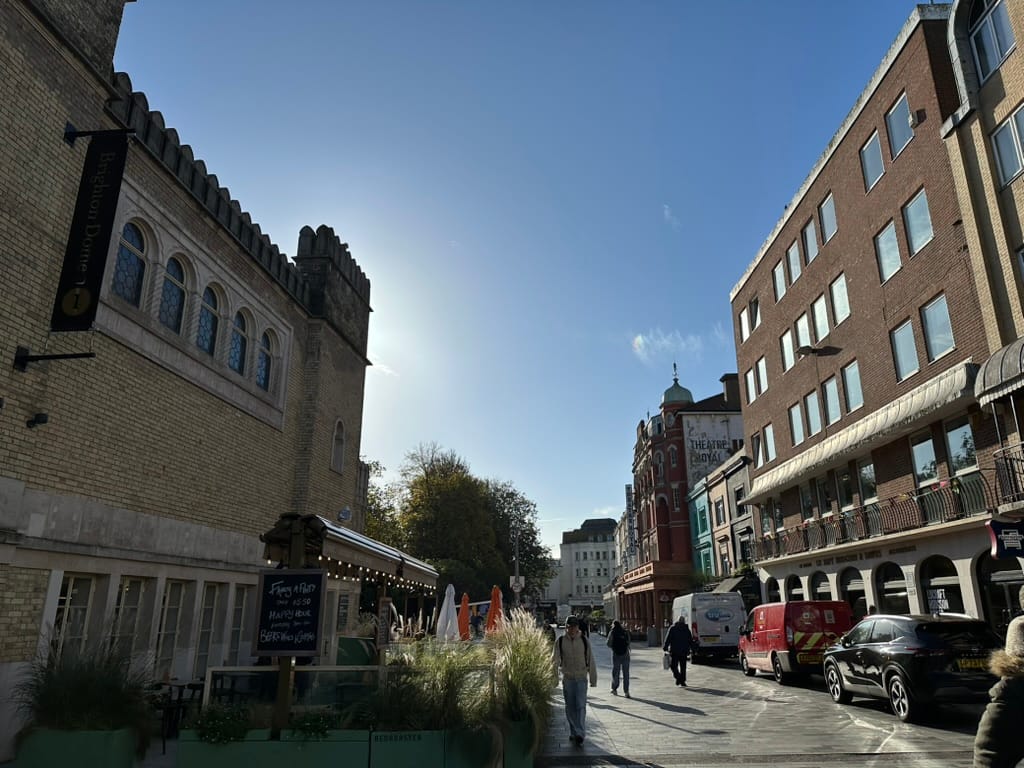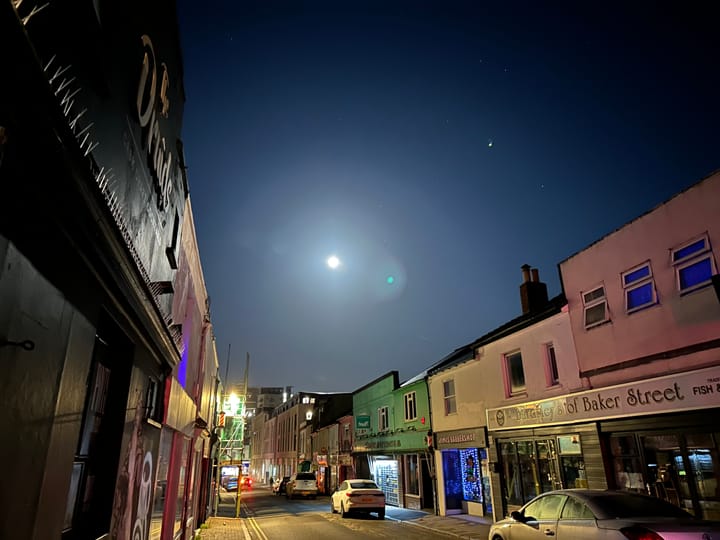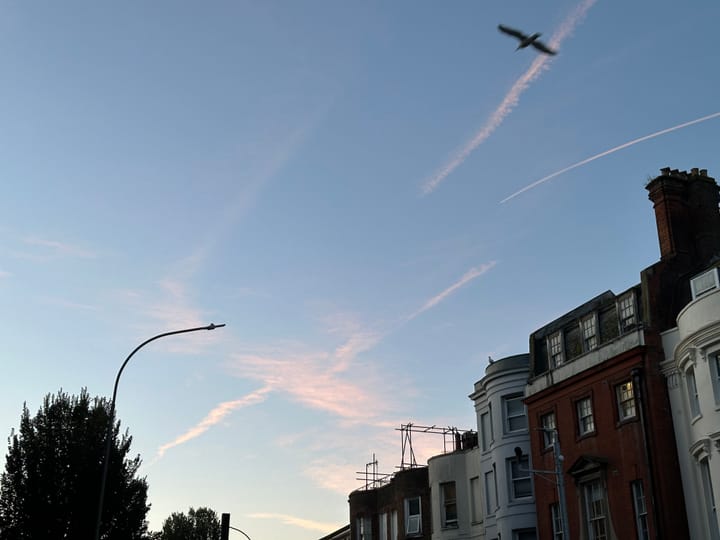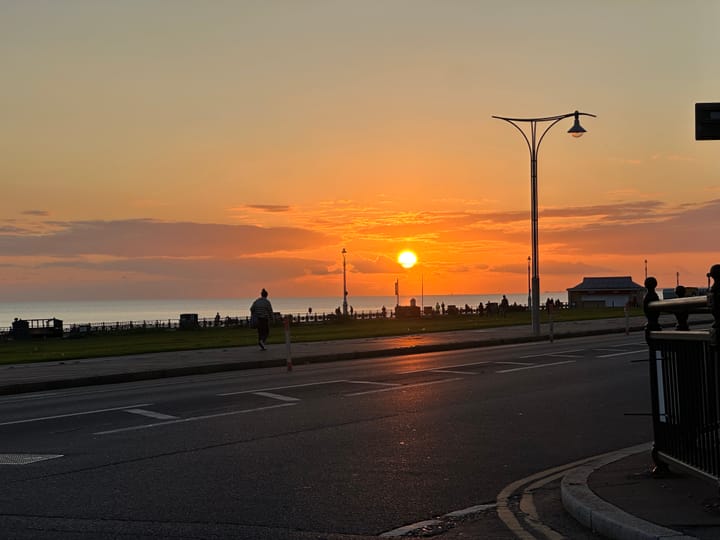Seagull Weekly Briefing 15/11
Madeira Terrace restoration, school admissions consultation, park & ride scheme affirmation and more

We're back! Did you miss us? We all had Covid, it was awful, but we're better now. Got cold in the meantime, and dark—and before you start, neither of those are the weather. Our editor is currently contesting with me whether temperature constitutes weather, but I'm saying it doesn't and I write this bit.
News This Week
Madeira Terrace restoration begins next week
Madeira Terrace is actually finally having its restoration start on Monday!!!
Next week, the process of clearing out rubbish and greenery to repair the Green Wall.
This means an extra £3 million going to Phase One of the Madeira Terrace Project, taking the total cost of the project to £14.68 million.
As well as restoring the arches, 'Phase One' includes:
- A new lift available 24/7
- Full replacement of the upper deck
- Painting which is 'guaranteed to perform better in coastal conditions than traditional materials available to the Victorians'
- Refacing and regreening the Green Wall 'where possible'
- A new staircase down from the deck next to Concorde 2/Shelter Hall
- Reinstatement of the planted verges at Madeira Drive level
- A more pedestrian friendly layout in front of the Terrace
- Seating on the upper deck
- Restoring 28 of the arches
The lift has not opened at deck level since it was closed, and exits solely into Concorde 2. A new lift that could accommodate wheelchairs and mobility scooters was originally meant to be installed at the Royal Crescent Steps next year, with lighting and security to provide 24/7 access.
The terrace was originally a covered promenade and viewing platform, designed to attract London tourists when the new railway opened in the late 1800s.
Over time, the marine environment caused deterioration, as well as cracks in the concrete decking and fractures in the cast iron which have made the structure unsafe.
School admissions consultation now closed, next steps pending
The secondary school admissions consultation that we reported on last month has now ended, with approximately 2,600 people having responded.
As a refresher, the council ran a consultation in October to find out what residents thought about possible changes to secondary school admissions arrangements.
The city is experiencing reducing student numbers, which the council say is affecting secondary schools, alongside inequality issues which we wrote about here. As a result, the council wants to review the number of pupils the city’s secondary schools take and the catchment areas where students attending our schools come from.
The council runs a consultation on admission arrangements every year, even if there are no proposed changes.
A formal consultation was meant to discussed yesterday, but the next steps will take time to come instead due to the number of responses.
As soon as we have a summary of responses, we will let you know, but they should be available 'soon'.
🖋 News in Brief 🖋
- A Tesco Express is opening where the old Currys used to be opposite Churchill Square—with an alcohol license, which is interesting considering the council tend not to give those to a lot of businesses in the area.
- Saltdean Lido is closed for around a month because, ironically, of leaks.
- The Catholic Diocese of Arundel and Brighton are consulting on the closure of St Joseph's Catholic Primary School in Hollingdean due to declining enrolment.
- Big talk from the council about launching a park and ride scheme as early as next summer: watch this space...
- Transgender Day of Remembrance will be marked at Fabrica on Sunday 17th November at 11:30am. There will be speeches, music, and a dedicated space for reflection and remembrance, with BSL interpretation and refreshments.
The Big One
What's happening? A fuel poverty and affordable warmth initiative has been updated to take into account changes in fuel poverty definitions, cost-of-living impacts, and rising energy prices.
What is the initiative? It's the Brighton & Hove Fuel Poverty & Affordable Warmth Plan.
Who runs it? It's coordinated by the Fuel Poverty & Affordable Warmth Steering Group, a team ran by the council, the NHS, East Sussex Fire and Rescue, and community organisations like Citizen's Advice and Brighton & Hove Energy Services Cooperative (BHESCo).
What is the Brighton & Hove Fuel Poverty & Affordable Warmth Plan? It is an initiative aimed at addressing fuel poverty and the the difficulties many people have to keep their homes warm.
How many people are currently affected by fuel poverty in the city? In Fuel poverty affects approximately 13.2% of households, or 16,000 homes.
What is that based on? The Low Income Low Energy Efficiency (LILEE) measure, which considers a household fuel-poor if it has a disposable income below the poverty line after housing and energy costs, and if the property has an energy efficiency rating below Band C.
How does that compare to the rest of the country? It's just above the national average, which is 13.1% of households, and higher than the south east, which is 9.7%.
Why are so many households affected by this? Rising energy prices and the increased cost of living since 2022, mostly, as well as home energy efficiency. According to council data, around 20% of houses in the city have an Energy Performance Certificate (EPC) rating of D or worse, showing they're relatively inefficient to heat.
What support does the plan offer to residents?
Residents struggling with fuel poverty can access several support services, including Energyworks, a partnership between Citizen’s Advice and BHESCo that provides energy advice and home energy checks, and LEAP (Local Energy Advice Partnership), a free service that offers advice and energy-saving measures.
What are the main objectives of the plan? To improve the energy efficiency of houses in the city, to provide support to residents struggling with energy bills, to prioritise assistance to the most disadvantaged and vulnerable households, to foster collaboration across organizations to tackle fuel poverty, and to maximize resources and funding for ongoing and future fuel poverty initiatives.




Comments ()